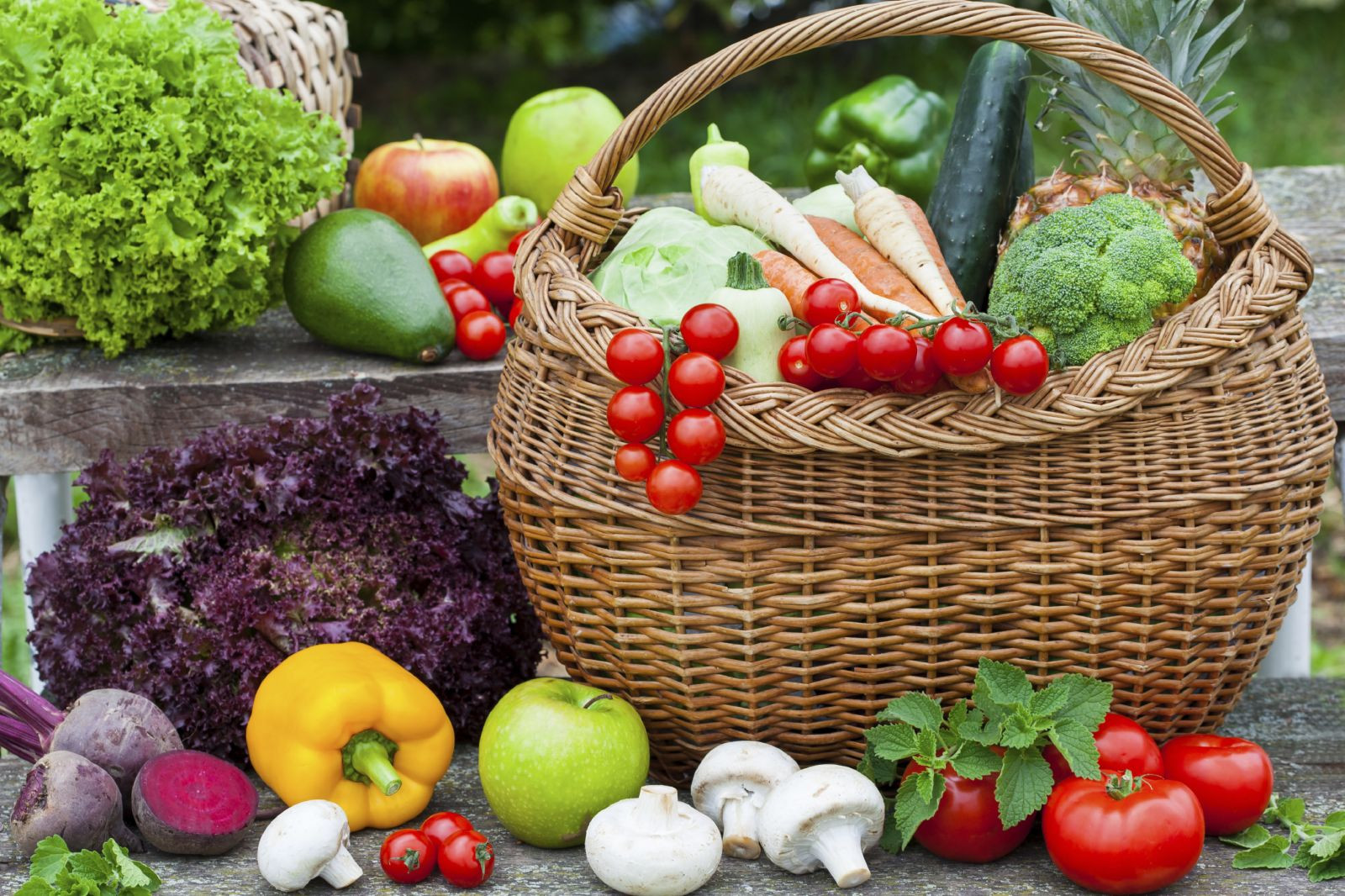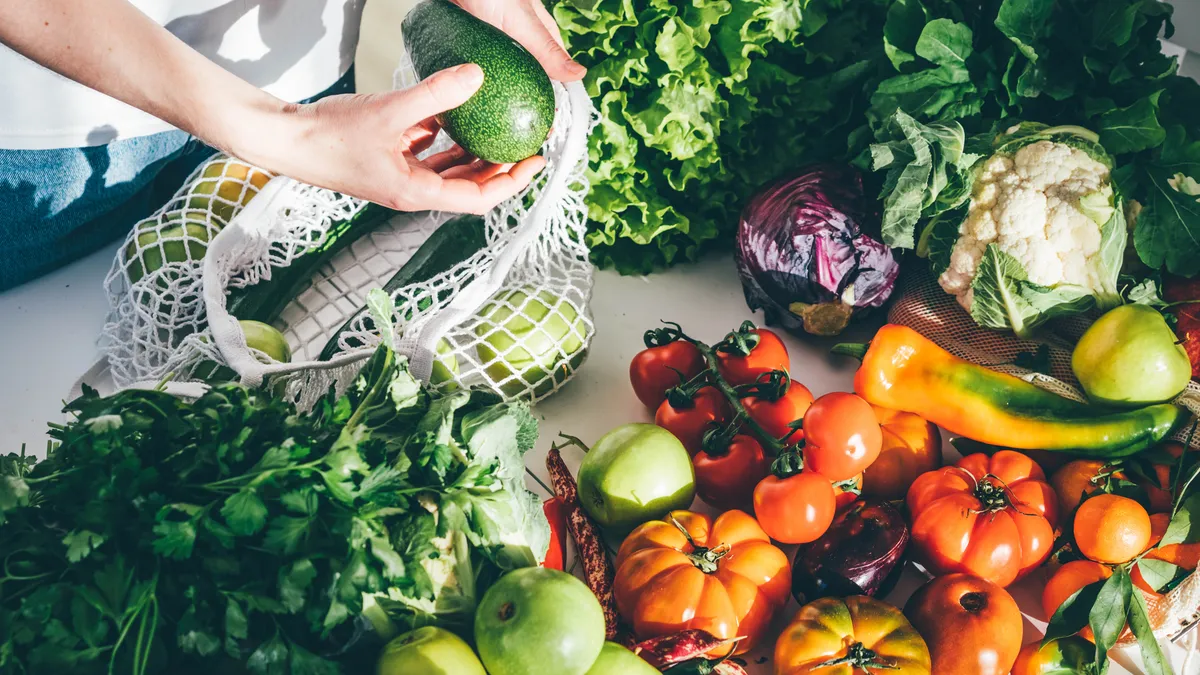Fruits and vegetables are essential to a healthy diet. Not only do they provide essential vitamins and minerals, but they also contain phytochemicals that can help reduce the risk of some chronic illnesses. Eating plenty of fruits and vegetables every day can help you maintain your weight, and lower your risk for heart disease, cancer, stroke, type 2 diabetes, and other chronic diseases.
When adding more fruits and vegetables to your diet, it’s important to choose a variety of types. Eating a variety of colors will ensure that you get all the vitamins, minerals, antioxidants, and phytonutrients your body needs for optimal health. Aim for at least five servings per day — half from vegetables and half from fruit — but don’t forget about dark green leafy vegetables like spinach or kale!
What Is Plant Based Diet?

A plant-based diet is one that emphasizes the consumption of whole grains, fruits, vegetables, legumes, nuts and seeds. This diet excludes or limits foods such as meat, dairy and processed foods. Plant-based diets are typically rich in vitamins, minerals and antioxidants which can help reduce the risk of chronic diseases like heart disease and diabetes. Research has also shown that a plant-based diet may be beneficial for weight management as well as mental health. Eating a variety of plant-based foods helps ensure you get all the nutrients your body needs to stay healthy and strong.
What Are The Ways To Add More Fruits And Vegetables To Your Diet?
Fruits and vegetables are a great source of vitamins and minerals, but many people struggle to add enough into their diets. Here are 7 strategies for adding more fruits and vegetables to your diet:
1) Do some swapping.
Swapping certain foods in your diet can have a positive effect on your health and overall wellbeing. It is important to ensure that you are getting the right nutrients, minerals, vitamins, and proteins for your body's needs. Swapping some items out of your diet can help with weight loss and reduce risk factors for chronic diseases such as diabetes, heart disease, and cancer.
When it comes to swapping food groups out of your diet, it's important to do so strategically. For instance, instead of replacing all animal-based protein sources with plant-based sources, try simply reducing the amount you consume each day or week. You can also substitute healthy fats like olive oil or avocado for butter or margarine when cooking meals. When it comes to carbohydrates, opt for whole grain, minimally processed options such as quinoa or brown rice over white carbs like white bread or pasta. When choosing dairy products, go for low-fat varieties like skim milk and plain Greek yogurt.
2) Be adventurous.
It's always a good idea to challenge yourself with your diet and try something new. Incorporating unusual ingredients or exotic recipes can add an exciting twist to your kitchen routine. An adventurous diet may even introduce you to healthier, nutrient-rich foods that would otherwise be overlooked. Plus, exploring different flavors can inspire creativity in the kitchen and make meals more enjoyable! Cooking should be a fun and rewarding experience – there’s no better time than now to experiment with new recipes and explore the world of cuisine. So get out there and have some fun trying new things! Who knows? You might even find your next favorite dish along the way.
3) Cook More vegetarian Food
Including more vegetarian food in your diet is a great way to get the nutrients your body needs while reducing the environmental impact of factory-farmed meat. Vegetarian options can be a delicious and nutritious part of any meal. From vegan burgers to veggie stir-fries, there are plenty of plant-based dishes that can add variety to your plate. Eating vegetarian meals may also help with weight management, as they tend to be lower in fat and calories than their animal-based counterparts. Furthermore, many scientific studies have found that vegetarians often enjoy better health due to their dietary choices.
4) Create a list of your favorite vegetable-rich recipes
Vegetables are a vital part of any healthy diet. They contain essential vitamins and minerals, plus they’re rich in dietary fiber, which helps to keep your digestive system healthy. So make sure to include plenty of vegetables when planning meals for yourself or your family. You can add them to casseroles, soups, stews, and salads, stir-fry them with chicken or tofu for a quick dinner option, or enjoy steamed veggies as a side dish alongside your favorite protein source like fish or lean meat. Eating a variety of vegetables will ensure you get the full range of vitamins, minerals and antioxidants that your body needs for optimal health.
5) Add fruits and vegetables

Fruits and vegetables come in all shapes, sizes and colors and are available in both fresh and frozen forms. Fresh is preferable since it contains more vitamins, minerals, antioxidants, and fiber. However, frozen vegetables can also be a convenient option, as they have often been flash-frozen at peak ripeness.
In addition to adding fruits and vegetables to your meals, making them the centerpiece of your plate is also important. For example, you could try a vegetable stir fry or add some colorful produce to a salad. Try to experiment with different fruits and veggies so that you won’t get bored with eating the same foods all the time. There are few natural fruit and veggie supplements available online, such as Balance of Nature fruits & veggies. Check out the balance of nature fruits & veggies review for more details.
6) Do more meal prep.
Meal prepping can be a great way to save time and ensure that you're eating healthy throughout the week. It's also a great way to reduce food waste. Here are some top tips for getting started with meal prep:
7) Try some new things.
If you're looking to make some changes to your diet, why not try something new? There are plenty of options available that can help you satisfy your nutritional needs while also providing a fresh twist on the way you eat. Cutting out processed foods, increasing your intake of plant-based proteins and adding some healthy fats to your daily meals can all add variety and nutrition to your plate.
Conclusion
In conclusion, vegetables and fruits play an important role in a healthy lifestyle. Eating a variety of colors and types of vegetables and fruits can help to lower the risk of many health problems. Eating a balanced diet that includes plenty of fresh produce will give your body the vitamins and minerals it needs for optimum health. It is also important to remember that moderation is key – eating too much food, including vegetables and fruits, can lead to weight gain. Finally, cooking vegetables properly helps to ensure they retain their nutritional value and flavor. When it comes to adding more vegetables and fruits into your diet, there are plenty of options available, such as using fruits and vegetable supplements, You can find them on Health Web Magazine.
Be the first to post comment!